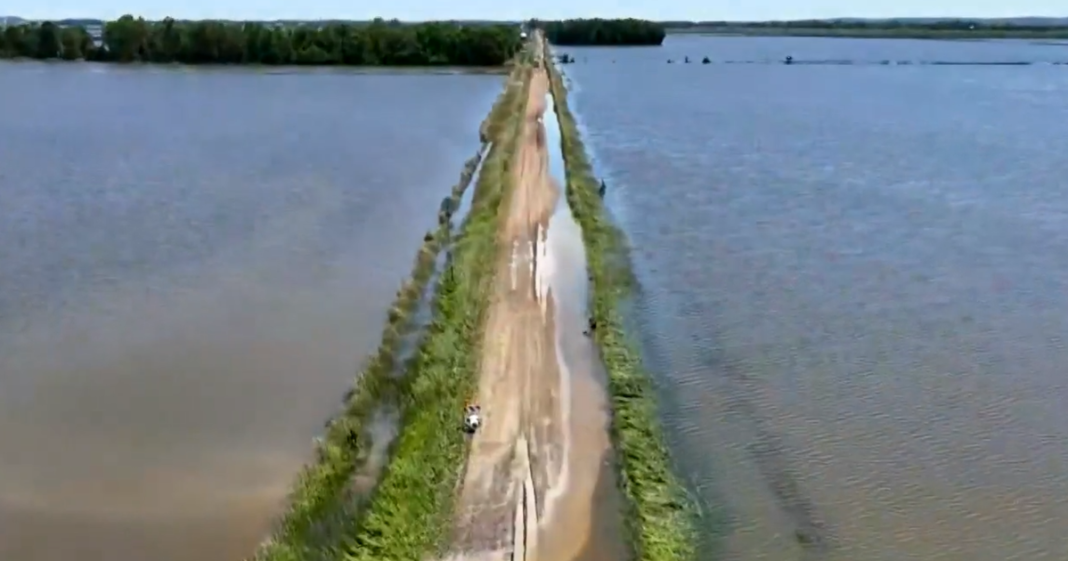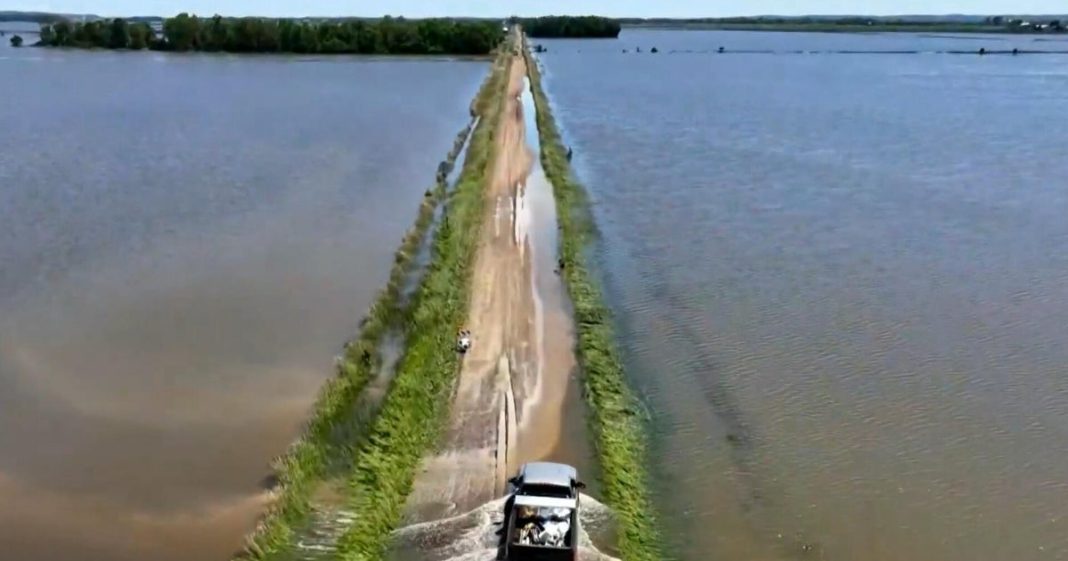Looking at the lush green fields in Jefferson, South Dakota, you’d never guess that historic flooding last summer turned Dave and Judy Oberg’s home into the kind of waterfront property nobody wants.
“It’ll never be the same. I’ve lived in this house my whole life,” Judy Oberg told CBS News while surveying the damage at the time.
They didn’t have flood insurance and didn’t get help from the government. They had to dig into their savings and sell off more than a third of their farmland.
A year later, the Obergs have a new house in a new spot on the same lot, but on top of a hill they built.
To afford the house, they looked to the local trade school, where students build two ready-to-deliver homes every year. One went to Habitat for Humanity. The Obergs bid on the other last July and won.
Judy Oberg said she still has nightmares, “especially when it rains.”
“People say, ‘Aren’t you so happy that you have this new house?’ They don’t understand my kids grew up there, and I grew up there, and those memories are never going to come back,” she said.
“The frustration I think we went through was the shock of what we were going to do,” Dave Oberg said. “We found this house, but then the work started.”
While farmers typically welcome rain, the area saw 18 inches in two days last summer. Eric Hunt, an agricultural meteorologist at the University of Nebraska, now worries about what he calls “whiplash weather” caused by climate change.
“We had almost a year’s worth of rain in two months,” Hunt said.”By October, they were in severe drought because it quit raining for most of the next three months.”
“Timing is everything with farming. If it comes at the wrong time, you could have major, major production problems,” he added.
Kenny Chicoine, the Obergs’ nephew, saw his family’s 3,000 acres of corn and soybeans wiped out by last summer’s floods. He replanted when it dried out enough, and he considers himself lucky to have salvaged a third of the usual crop, but it came at a price.
“Irrigation systems, ditches, any infrastructure that exists in this field was basically replaced on our own dime. There was no help for that stuff,” Chicoine told CBS News.
So far this summer, though, Mother Nature appears to be giving back, with crops coming in as expected. It’s something the Obergs will never take for granted.
“You have to look to the future. You have to leave it in the past, go forward. That’s what life is about,” Judy Oberg said.




